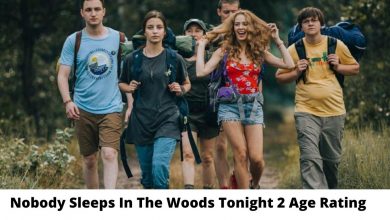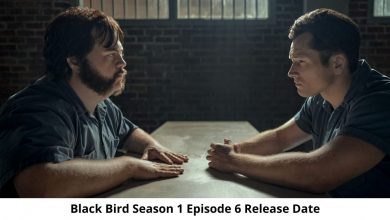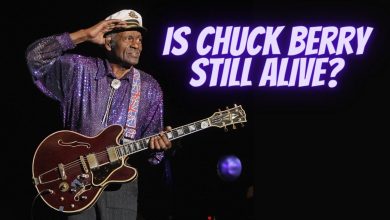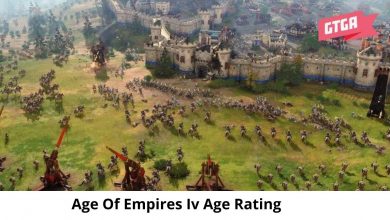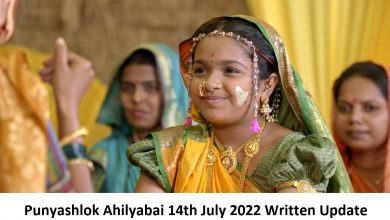DJ Shub launches dream touring production with ‘War Club’
Two years into this damn pandemic and dancing still officially ranks above such evils as hitting the treadmill at the YMCA, indulging in a haircut or a mani-pedi on your day off and even stopping in for a pint at your long-shuttered local.
There’s a lot of pent-up energy waiting to be released out there when (or if, but let’s optimistically avoid “if” for the moment) the wet COVID blanket finally lifts and party people can actually party again. In the meantime, however, singular southern-Ontario beatmaker DJ Shub hasn’t exactly quelled everyone’s collective thirst for properly gettin’ down by inviting us all to the coolest woodland electro-throwdown we weren’t actually invited to via his recent “War Club” special for CBC Gem.
Shot amidst the longhouses of Ska-Nah-Doht Village, a recreated First Nations settlement nestled in the Longwoods Road Conservation Area near Mount Brydges, Shub’s 40-minute “War Club” film is a slick, provocative all-in preview of the dream touring production he’s been hoping to mount in support of the monster album of the same name since it dropped in December of 2020 — just in time for touring productions and touring in general to shut down for two years — as well as sturdy reminder that North America’s Indigenous peoples knew a thing or two about “raving” long before “raves” became an actual thing.
It’ll pain you with envy that you weren’t there to experience the whole whirlwind of dance, drumming, ageless, elemental culture and costumery and community in person, but here’s the good news: “War Club” is now its own big thing, too. Shub is taking the full “War Club” extravaganza on the road, kicking off a spring tour with Ontario dates at the Bronson Centre in Ottawa on March 24 and at the Opera House in Toronto on March 25. The Opera House date, announced Friday, is a considerable upsizing from his originally planned, and postponed, Feb. 25 gig at the comparatively cozy Drake Underground, but the show has grown in size and ambition, too. The plan is to take many of the short film’s choreographic trappings and musical guests out on the road with him.
“I’m really excited. This is the sort of thing that I’ve been wanting to do since the beginning but I didn’t know I’ve been wanting to do,” says Shub, born Dan General, after a train ride into Toronto from his home in Fort Erie earlier this week. “You’re gonna see performers, you’re gonna see dancers, you’re gonna see all this stuff. And playing the Opera House is pretty exciting for me. That was where I had my first DJ battle in 2003, and my brother took me to see a gig with Pete Rock and CL Smooth there when I was a kid. The place has some special meaning for me.”
Details of just who will turn up for the “War Club” dates haven’t been revealed, but since nearly everybody involved in the 19-track album — including firebrand Toronto rapper Phoenix Pagliacci, Montreal Latin-dance machine Boogat, Manitoba First Nations MC Hellnback, former Rod Stewart guitarist Stevie Salas and singer Fawn Wood — made it out for the single-day film shoot last year chances are it’ll be an all-star affair. Only Snotty Nose Rez Kids and greying Can-rocker Randy Bachman didn’t make the film, but only because they had other obligations. So one never knows who might turn up night to night.
It’s a tantalizing step forward into festival season for Shub, who had to suffer a rough few years to renew his focus on getting the stirring mash-up of hip-hop, dubstep, techno and traditional Indigenous music he pioneered with Ottawa-born DJ/producer trio A Tribe Called Red and that has become known as “powwow-step,” back out in front of people in a big way.
There was his somewhat acrimonious departure from Tribe in 2014, a subject he — and the rest of Tribe, which rebranded itself as the Halluci Nation last year, not long after the departure of fellow co-founding member Ian “DJ NDN” Campeau, are all tired of talking about. He simply likens the situation to moving on from an old college roommate, where “you love them but you don’t want to be their roommate forever.”
There was a steep slide into growing drug and alcohol addiction sometime around the making of Shub’s 2016 comeback EP, “PowWowStep,” too, that eventually got so bad his manager quit, his brave new manager had to send him out on tour with a minder to keep him straight and he wound up packing off for a month-long stint in rehab.
“Once I left Tribe, I was making a lot of money on my own and all of a sudden I was getting a paycheque that I didn’t have to split three ways, y’know?” chuckles Shub, now sober for three years. “And touring and playing shows at the time didn’t really slow down that much for me because my name was established. That lasted for a couple of years, but that couple of years killed me, health-wise. I was into drugs and I was drinking too much and I started missing shows.
“I tried stopping on my own to get sober. But I knew in my head I needed something drastic. Towards the end, towards the last month before I went to rehab, every time I was drunk or I got high that’s what I would be telling myself: ‘I need to get help, I need to get help.’ For that whole last part, there, I knew. Subconsciously I was just, like, ‘I don’t wanna end up dead in a f–ing hotel after a gig somewhere.’ How s-t would that be?”
Shub, the father of a 15-year-old son and a 7-year-old daughter, credits his wife Julie, his recovery coach Ace Piva and steadfast manager Eli Wener with bringing him back from the precipice.
“They all came together, them two, my wife, my family, and they were gonna do an intervention,” he recalls. “They had everybody at my house the one day. And they didn’t even need to f–in’ do it. I came down and I saw everybody and I said ‘Alright, I’m going. I’ll go. Let’s go now.’ I knew it. It was almost like I’d kinda been waiting for this to happen.”
Shub can now continue the mission he began with A Tribe Called Red years ago at the group’s formative, now legendary Ottawa club night, Electric Powwow, of spreading understanding and respect for Indigenous culture with a clear head and a gracious appreciation of his position as “the godfather of powwow-step.” He’s still in awe of how wide the walloping electronic music he’s made with Tribe and on his own has travelled, but he’s happy to see it still happening. His Mohawk ancestors might have used their war clubs to get their point across in brutal fashion during war times, he says, but he’s found a more subtle weapon for change in dance music.
“It’s the culture. Trying to find culture in music these days – especially in electronic music – is kinda hard to do,” says Shub. “It was easy for people to like it because not only are you hearing something new, but you’re hearing this deep-rooted culture that’s behind the music. And that helps ask questions. It helps create spaces and stuff. So it’s not only just the music, but it’s creating space and encouraging Indigenous and non-Indigenous people to come together. Without it being so negative, y’know?
“That’s why I love music, right? How else would I be doing this without music? I don’t think I would be able to. Other than lecturing people, how would I get these ideas or my concerns about things out there? That’s why I thank the Creator for music, man, because music and the arts are the easiest ways to get to people. It’s an easy and non-aggressive way to hit people with knowledge or to hit people with culture. Music can create that comfortable space, where you can come in and listen and just be. Music’s not gonna yell at you for being a certain way, and you’re actually gonna find people around you who feel the same way you do. And that’s awesome, man. And that’s what blew me away about those early Electric PowWow parties in Ottawa, that was the first time I’d seen that many Indigenous and non-Indigenous people come together just for the love of the music. The front row was just a mix of everybody and it was so mind-blowing. It just blew me away.”
JOIN THE CONVERSATION
